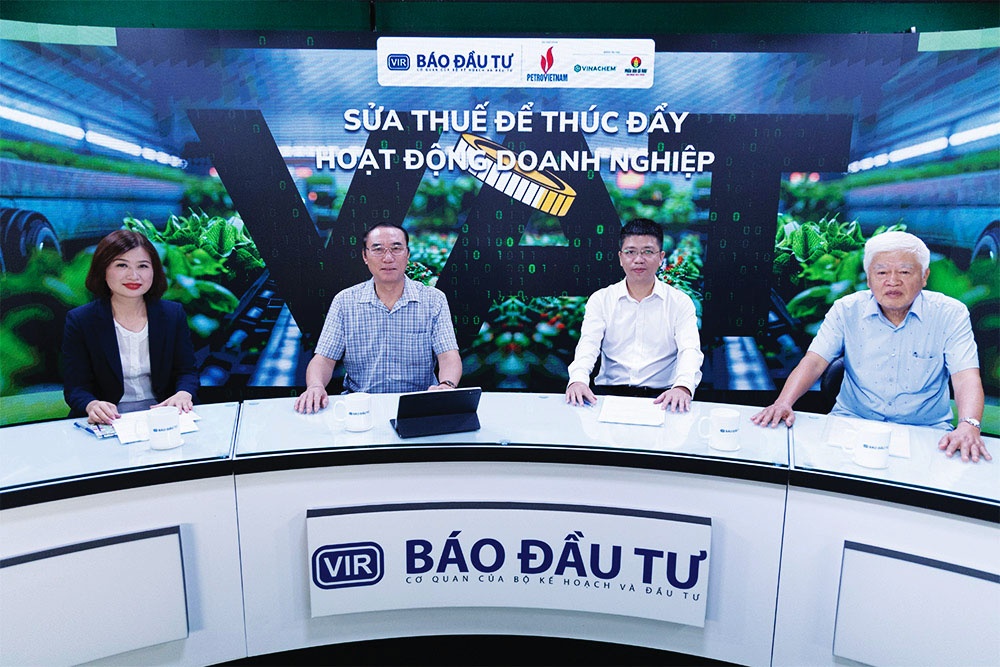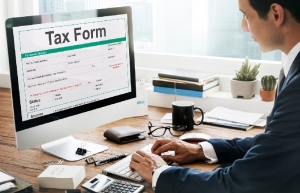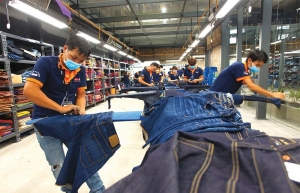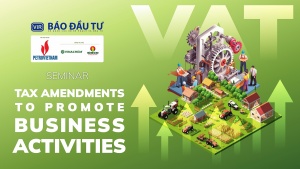Businesses anticipate green light for fertiliser VAT switch
At the National Assembly (NA) Standing Committee’s working agenda in Hanoi on June 11, one of the most discussed issues was the proposal to apply a 5 per cent VAT rate on fertiliser under the amended law on VAT.
 |
The Ministry of Finance first proposed the move in January, in a departure from the current tax-exempt status outlined in the VAT Law. The amended law is scheduled to be passed at the eighth meeting of the NA in October.
Before 2015, when the VAT rate for fertilisers was 5 per cent, the company could still deduct taxes when carrying out investment activities, purchasing, and paying costs. However, after a new law took effect in 2015, fertilisers were no longer subject to VAT, so the business could no longer claim a refund of this tax difference.
“This amended law benefits foreign producers when exporting fertilisers to Vietnam without having to bear VAT costs and affects domestic manufacturers. Another problem is that Vietnam imports a significant amount of fertiliser every year, mostly from countries which impose VAT on fertiliser,” said Nguyen Van Phung, former director of the Large Enterprise Tax Administration Department, under the General Department of Taxation.
“This means that exporters will get an input VAT tax refund when exporting to Vietnam, allowing them to lower prices by an estimated 5-8 per cent,” Phung added.
Statistics from the General Department of Customs showed that Vietnam imported nearly 4.12 million tonnes of fertilisers in 2023, worth $1.41 billion, representing a rise of 21.3 per cent in volume but a fall of 12.8 per cent in value from 2022. Average import fertiliser prices were $343 per tonne in 2023, 28 per cent lower than a year ago.
In the first three months of 2024, the country imported over 1.12 million tonnes of fertiliser, valued at nearly $352 million, with an average price of $315 per tonne.
Vietnam imports fertiliser mainly from China and Russia, which together account for 60 per cent of the country’s import value. Fertilisers are subject to 11 per cent VAT in China, which is proposed to be reduced to 9 per cent, and 20 per cent in Russia.
“The absence of VAT on fertilisers for many years has prevented domestic producers from declaring and deducting input VAT. The non-deduction of VAT for machinery, equipment, and installation leads to an increase in total investment, reduces project efficiency, and makes businesses hesitant to invest in new projects for new-generation and high-tech fertilisers,” said Nguyen Hoang Trung, deputy general director of Vietnam National Chemical Group (Vinachem).
The fertiliser industry scale is estimated at over $4.15 billion per year, thus, with non-deductible VAT at 5 per cent, manufacturers have to bear $125-165 million per year. For Vinachem particularly, the company’s input VAT which is not deducted is estimated to be $416.7 million during nearly 10 years of the absence of VAT.
“The fertiliser production process includes chemicals, thus, the ideal equipment lifecycle is 15-20 years. Thus, if the VAT Law is amended, it is an important motivation for businesses to invest in building new-generation, high-tech fertiliser production lines with better quality and more environmentally friendly. As a result, the manufacturers will have opportunities to capture the market shares thanks to the good products with the competed selling prices,” Trung said.
Vinachem fertiliser is produced from the main source in Lao Cai province, the only phosphate ore mine in Vietnam with high quality. Thus, if the domestic fertiliser sector has growth opportunities, it will create better conditions to foster the development of the supporting sector of the mining industry, Trung added.
“In addition, farmers will also enjoy benefit when domestic fertiliser businesses produce stably and efficiently, enabling them to lower costs and reduce selling prices to farmers,” Trung said.
| On June 14, Vietnam Investment Review in partnership with PetroVietnam, Vinachem, and PetroVietnam Ca Mau Fertiliser held a talk show themed “Tax Amendments to Promote Business Activities”. The event created a forum to discuss the practical basis and the purpose of the amendments of the VAT rate on fertilisers. The talk show was broadcast live through various channels of VIR. |
| Phung Ha, general secretary Fertiliser Association of Vietnam Market reality affirms the important role of fertiliser businesses with a large market share. They must both control input costs, which are increasing very high, and maintain affordable selling prices to be welcomed by farmers, and ensuring food security in the country. Because fertiliser is a non-taxable item, VAT expenses incurred during the production and business are not deducted. So all of the costs are calculated into the selling price. All costs arising from VAT such as investment in factories, machinery, electricity, and raw materials are included in production costs. So farmers are also affected by buying fertiliser at a 5-8 per cent higher price. With a fertiliser industry scale of over $4.1 billion per year, and non-deductible VAT (at 5 per cent) of the fertiliser industry is equalling $120-165 million per year. This is a very large number as compared to the after-tax profits of fertiliser producers. Moreover, due to non-deductible VAT, fertiliser producers have not much capital to purchase, repair, and upgrade fixed assets to create new generation fertiliser products with high quality and technologies. Nguyen Thi Thuy Duong, board member School of Banking and Finance National Economic University According to statistics from the General Department of Customs, the number of fertilisers imported into Vietnam (especially urea) has continuously increased about 3-5 times in recent years. Because imported fertilisers benefit from import tax cuts in Vietnam following the commitments of free trade agreements. Therefore, foreign businesses can lower fertiliser prices easily to compete with domestic fertilisers. Vietnam imports a lot of fertiliser from other countries, where mostly put fertiliser products under VAT (9 per cent in China, 10 per cent in Japan). When exporting fertiliser to Vietnam, these exporters are refunded input VAT. Furthermore, this product exporting into Vietnam is not subject to VAT at the import stage, so the selling price of imported products is cheaper and compete unfairly with fertilisers produced in Vietnam. In reality, fertiliser producers in the region, even those using outdated technology, are supported to enter the Vietnamese market, causing domestic enterprises to struggle for competitive pressure. Do Duc Hung, deputy director general Agricultural Products and Materials We expect to review and amend the law to include fertilisers in the list subject to VAT and the specific VAT rate for this item should be 5 per cent. If this proposal is accepted, it will be favourable for businesses, which will save costs due to input tax refund, and selling prices will also be reduced. In addition, businesses have many motivations to invest in research and development of high-quality, new generation fertilisers, making general efficiency to the entire society like creating jobs, participating in exports and earning foreign exchange, improving product quality, enhancing agricultural efficiency and increasing farmers’ income. Putting fertilisers in the list subject to VAT and a specific VAT rate of 5 per cent will also contribute to more equitable competition with imported fertilisers, especially those from countries with zero fertiliser import tax like China and ASEAN members. Currently, fertiliser importers do not have input VAT, so they have a competitive advantage over domestic fertiliser manufacturers. If this continues, domestic fertiliser manufacturers will fall into extremely difficult situations with poor performance production and production downsizing. The new tax rate will make competition more equal between domestic and foreign fertilisers in the market. We all local business can compete, but competition must base on an equal basis. |
 | Still no VAT hike proposal to aid business development The amended VAT Law is set to be submitted for approval next month with new content, yet the common tax rate is still proposed at 10 per cent to help businesses through current turbulent times. |
 | VAT cut continuation expected to ease woes The business community is set to benefit from a continued VAT reduction as part of the country’s major efforts to assist enterprises currently facing massive difficulties. |
 | VIR to host talk show on tax amendments to promote business activities A talk show themed “Tax Amendments to Promote Business Activities” will be held by VIR on June 14 to provide insights into amended tax regulations. |
What the stars mean:
★ Poor ★ ★ Promising ★★★ Good ★★★★ Very good ★★★★★ Exceptional
 Tag:
Tag:
Related Contents
Latest News
More News
- Vietnam ready to increase purchases of US goods (February 04, 2026 | 15:55)
- Steel industry faces challenges in 2026 (February 03, 2026 | 17:20)
- State corporations poised to drive 2026 growth (February 03, 2026 | 13:58)
- Why high-tech talent will define Vietnam’s growth (February 02, 2026 | 10:47)
- FMCG resilience amid varying storms (February 02, 2026 | 10:00)
- Customs reforms strengthen business confidence, support trade growth (February 01, 2026 | 08:20)
- Vietnam and US to launch sixth trade negotiation round (January 30, 2026 | 15:19)
- Digital publishing emerges as key growth driver in Vietnam (January 30, 2026 | 10:59)
- EVN signs key contract for Tri An hydropower expansion (January 30, 2026 | 10:57)
- Vietnam to lead trade growth in ASEAN (January 29, 2026 | 15:08)


















 Mobile Version
Mobile Version